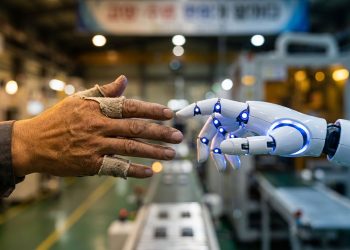South Korea’s government and the ruling People Power Party have announced plans to invest over 3 trillion won ($2.06 billion) by 2027 to strengthen defense industry exports. The funding will focus on 10 key defense technologies, including artificial intelligence, aerospace, and advanced materials, to enhance global competitiveness.
As part of the initiative, leading small and medium-sized enterprises (SMEs) in defense materials and components will receive up to 5 billion won per company for two years. This support aims to help local firms integrate into global supply chains and expand their presence in the international defense market.
The National Assembly’s “K-Defense Industry Export Support Council” meeting has suggested the urgent need for comprehensive government backing to adapt to shifting international dynamics, particularly with the new Trump administration in power.
Representative Seong Il-jong, chair of the National Assembly Defense Committee, emphasized the critical role of government action, pointing out that defense exports reached a record high of $24 billion this year. Given the inherently government-to-government (G2G) nature of the defense industry, swift governmental measures are essential.
In response, the government plans to consider suggestions from the defense sector and use the special extended working hours system, which allows workers to work up to 64 hours a week for up to 180 days annually under certain conditions. Minister of Employment and Labor Kim Moon-soo expressed support for these measures, committing to offer active assistance within permissible limits. Additionally, Kim Sang-hoon, the chairman of the ruling party’s Policy Committee, assured that financial support would be strengthened, including through the Export-Import Bank of Korea.
The government anticipates a rebound in the country’s arms exports, which experienced a downturn last year despite the nation’s goal of becoming the world’s fourth-largest arms exporter by 2027. More than 3 trillion won will be allocated by 2027 to develop ten key defense technologies, including artificial intelligence, space systems, advanced materials, and integrated manned-unmanned systems. These investments are seen as crucial to boosting export competitiveness.
As part of the strategy, small and medium-sized defense manufacturers that show innovation and promise will be granted up to 5 billion won over the next two years. Key state-owned financial institutions, such as the Export-Import Bank of Korea and the Korea Trade Insurance Corporation, will provide additional financial support to these manufacturers, enhancing their ability to compete in the global market.
People Power Party Floor Leader Kwon Seong-dong emphasized that the ROK-US alliance is expected to enter a new phase in the army, air force, and naval sectors under the new Trump administration. He stressed that legal and institutional backing is crucial for K-defense exports, highlighting the growing significance of the National Assembly’s role in supporting this shift.
To support the industry’s growth, the government plans to introduce a special overtime work permit system, enabling arms manufacturers to request up to 64 hours of work per week for up to 180 days a year, subject to approval by the Ministry of Employment and Labor. This would deviate from the typical 40-hour workweek limit under Korea’s Labor Standards Act. In addition, the government will allocate up to 5 billion won annually for two years to help small firms producing defense parts and materials expand their presence in global supply chains.







